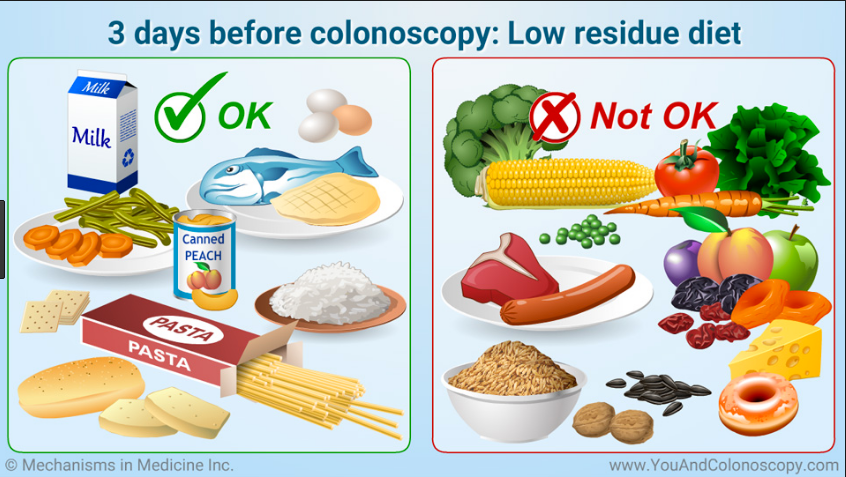5 Essential Diet Tips from Dana White to Transform Your Health in 2025
As we move into 2025, optimizing our health is more important than ever. Dana White, renowned for his role in sports and health, offers insightful diet tips that can help anyone achieve their nutritional goals. These tips encompass a variety of strategies, including the **Keto diet**, **Mediterranean diet**, and effective meal planning, ensuring that you find what works best for you.
1. Embrace Low-Carb and Keto Diets
One of Dana White's notable dietary strategies involves **low-carb diets** and particularly the **Keto diet**. By reducing carbohydrate intake, you encourage your body to enter a state of ketosis, where it burns fat for fuel instead of carbs. This **weight loss strategy** has been effective for many seeking to shed excess pounds and enhance their energy levels. Low-carb diets can lead to improved metabolism and have positive effects on heart health, making them a viable option for anyone looking to optimize their health in 2025.
Understanding the Benefits of a Keto Diet
The **Keto diet** is characterized by high-fat, moderate protein, and very low carbohydrates. This composition helps the body utilize fat as its primary energy source. Studies suggest that this metabolic shift can aid in significant **weight loss** and improve mental clarity. Including healthy fats like avocados and nuts, along with **fiber-rich foods** such as leafy greens, will enhance the efficacy of this diet. It’s essential to plan meals carefully to ensure a well-balanced intake of nutrients.
Incorporating Meal Planning into a Low-Carb Diet
Effective **meal planning** is key when adhering to a **low-carb diet**. By preparing meals in advance, you help ensure that you stick to your dietary goals without succumbing to temptations or convenience foods high in carbs. Consider batch cooking protein sources like chicken and fish, and optimizing your choice of vegetables to maintain nutritious options for the week. This method not only controls portions but also contributes to balanced nutrition throughout your week.
2. Focus on Clean Eating and Portion Control
Another important aspect of Dana White's diet advice is the concept of **clean eating** combined with effective **portion control**. Clean eating encourages the intake of whole, unprocessed foods that are free from additives, which can lead to improved health overall. By focusing on nutrient-dense foods rather than empty-calorie options, you can ensure that your body receives essential vitamins and minerals needed for optimal function.
Tips for Effective Portion Control
Proper **portion control** can play a critical role in your weight management journey. To maintain control over your portions, consider using measuring cups or a food scale, especially when cooking at home. Additionally, practice mindful eating by acknowledging your hunger and fullness cues and enjoying meals without distractions. This approach can help prevent overeating and contribute to sustainable dietary habits.
Snacking Wisely: Choosing Healthy Options
When hunger strikes between meals, opt for **healthy snacks** such as fruits, nuts, or yogurt instead of processed snacks laden with sugars and unhealthy fats. Keeping pre-portioned healthy snacks on hand can help maintain your **weight loss strategies** and stave off cravings while sticking to your clean eating goals. Incorporating these nutrient-dense snacks conserves your energy levels, preventing decline throughout the day.
3. Intermittent Fasting: A Game-Changer
Intermittent fasting has gained significant attention in recent years, and it is one of Dana White's recommended practices for 2025. This approach to eating involves cycling between periods of eating and fasting, which can help with weight loss, insulin sensitivity, and overall health. By limiting the eating window, individuals often find that they naturally reduce their caloric intake without the need for strict calorie counting.
Practical Approaches to Intermittent Fasting
There are various methods of intermittent fasting, including the 16/8 method, where you eat within an 8-hour window each day. This can boost metabolic health and streamline your daily meal prep. During eating periods, focus on nutrient-dense foods—lean proteins, healthy fats, and lots of vegetables—for a satisfying and nourishing diet. Always ensure to stay hydrated during fasting hours by drinking water, herbal teas, or **sugar-free drinks** to alleviate hunger without adding calories.
Scheduling Meals Strategically
Effective **meal timing** is essential in intermittent fasting. Plan your meals around your daily schedule to minimize cravings and maximize the benefits of fasting. Eating in alignment with your circadian rhythm can enhance energy levels and improve digestion. It may also be beneficial to incorporate **post-workout nutrition**, ensuring your body receives the necessary nutrients for recovery after exercise.
4. Explore Diverse Dietary Options: Mediterranean to Vegan
Choosing a variety of diets can lead to improved health outcomes and better adherence to dietary goals. Dana White encourages individuals to explore options like the **Mediterranean diet**, known for its focus on fresh fruits, vegetables, whole grains, and healthy fats. Similarly, **plant-based diets**, including **vegan** and **vegetarian** options, offer an abundance of nutrients while supporting heart health. Experimenting with different diets can help identify what suits your lifestyle best.
Benefits of the Mediterranean Diet
The **Mediterranean diet** is not just about food, it's about enjoying meals and the social aspect of dining. This diet has numerous health benefits, including lowering the risk of heart disease, increasing longevity, and promoting overall health. Key components include olive oil, fish, whole grains, fruits, and vegetables. By adopting this diet, you can enjoy flavorful meals vibrantly while maintaining a healthy lifestyle.
Encouraging Plant-Based Eating
The increasing interest in plant-based eating reflects the need for diets rich in antioxidants and fibers. Choosing a **vegan diet** or incorporating **vegetarian meals** several times a week can lead to numerous benefits, including weight management and a lower risk of chronic diseases. Plan meals to include various protein sources such as legumes, nuts, and fortified products to ensure complete nutrition. Emphasizing seasonal and local produce can also keep your meals fresh and exciting.
Key Takeaways
- Embrace a **low-carb diet** or **Keto diet** for effective weight management.
- Focus on **clean eating** and **portion control** for sustainable health benefits.
- Consider **intermittent fasting** as a strategy to enhance metabolism.
- Explore varied dietary styles, including the **Mediterranean diet** and **veganism**, for nutritional richness.
Images


FAQ
1. What are the key principles of the Keto diet?
The Keto diet focuses on high fat and low carbohydrate intake, encouraging the body to burn fat for energy rather than carbohydrates, which can facilitate **weight loss** and improve mental clarity.
2. How does intermittent fasting affect weight management?
Intermittent fasting can help reduce total calorie intake without rigorous dieting, leading to effective **weight management** and improved metabolic health.
3. Can I follow a Mediterranean diet if I am vegan?
Yes, the Mediterranean diet can include **vegan** choices by focusing on fruits, vegetables, whole grains, legumes, and healthy fats, offering a variety of nutrient-rich foods.
4. What makes clean eating beneficial?
**Clean eating** prioritizes whole and unprocessed foods, leading to improved nutrient intake and better overall health while reducing the risk of chronic diseases.
5. Are there effective snacks for weight loss?
When trying to lose weight, opt for **healthy snacks**, such as fruits, nuts, or yogurt, to keep your nutrition balanced without overindulging in empty calories.
